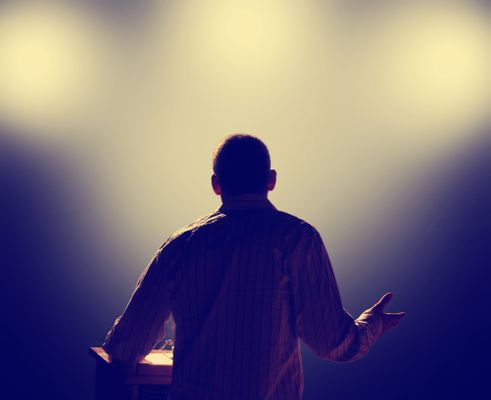1.3.2
Khrushchev's Attempts to Reform Government
Khrushchev's Reforms
Khrushchev's Reforms
Following the Secret Speech, Khrushchev began a campaign of reform in reaction to Stalin's rule.


The impact of the speech
The impact of the speech
- One of Khrushchev's claims during the 20th Congress was that the party was too monolithic - only one set of views was allowed.
- Stalin and Lenin had hated 'deviationists', so few expressed any criticism of official policy.
- The secret speech created a new climate of criticism.
- Portraits and busts of Stalin were destroyed. Some now called Stalin an 'enemy of the people.'
- There were regional differences: in Georgia, Stalin's home, four days of protests shook Tbilisi, the capital.


Practical steps
Practical steps
- Khrushchev sent troops to deal with the protests in Tbilisi.
- Twenty died and 60 injured.
- Khrushchev did not want the impact of his speech to get out of control.
- Khrushchev released thousands of gulag political prisoners.


Khrushchev's weaknesses
Khrushchev's weaknesses
- Although Khrushchev was trying to 'de-Stalinise' (if not liberalise) the USSR, his position was not entirely secure.
- June 1957: Malenkov, Molotov, Voroshilov and Bulganin attempted to overthrow Khrushchev.
- Khrushchev was able to use his base support in the party to win a vote against the rebels.
- The secret speech had not given Khrushchev the popularity he had hoped for.


National minorities
National minorities
- Khrushchev's criticism of Stalin made groups who were unhappy with Soviet rule feel they could rebel.
- In the satellite Soviet states, such as Hungary and Poland, this created a particular challenge.
- Neither country wanted a communist government.
- 1956: Khrushchev used military force to put down protests in Hungary.
- This led to 20,000 Hungarian and 1,500 Soviet casualties.
- In doing so, he re-affirmed his position as a 'Stalinist'.


Khrushchev's political legacy
Khrushchev's political legacy
- A portrait of Stalin hung in Khrushchev's office long after the speech.
- This showed where his ultimate political loyalties lay.
- There were still elements of his rule which were more liberal.
- For example, he allowed the publication of One Day in the Life of Ivan Denisovich (Alexander Solzhenitsyn), which was critical of the regime.
- Having raised the hopes of reformers in East and West alike, many thought the Cold War was thawing.


Cold War legacy
Cold War legacy
- The West was more confident in dealing with the USSR under Khrushchev.
- But in practice, the biggest Cold War crises in Berlin and Cuba came under Khrushchev's rule.
1Communist Government in the USSR, 1917-85
1.1Establishing Communist Party Control, 1917-24
1.2Stalin in Power, 1928-53
1.2.1The Elimination of Opponents
1.2.2The Purges of the 1930s
1.2.3End of Topic Test - The Elimination of Opponents
1.2.4Stalin's Power Over the Communist Party
1.2.5Stalin's Power During & After the Communist Party
1.2.6End of Topic Test - Power Over the Communist Party
1.2.7A-A* (AO3/4) - Stalin in Power
2Industrial & Agricultural Changes
2.1Towards a Command Economy
2.2Industry & Agriculture in the Stalin Era
3Control of the People, 1917-85
3.1Media, Propaganda & Religion
3.2The Secret Police
4Social Developments, 1917-35
4.1Social Security
4.2Women & Family
5Historical Interpretations
5.1What Explains the Fall of the USSR, 1985-91?
5.1.1Economic Weakness
5.1.2Attempts at Economic Reform
5.1.3Failure To Reform The Communist Party & Soviet Gov
5.1.4Impact of Reforms
5.1.5End of Topic Test - Economic Reform
5.1.6Impact of the Nationalist Resurgence
5.1.7Impact of the Nationalist Resurgence 2
5.1.8End of the USSR
5.1.9Gorbachev & Yeltsin's Responsibility
5.1.10End of Topic Test - Nationalist Resurgence
5.1.11A-A* (AO3/4) - Explaining the Fall of the USSR
Jump to other topics
1Communist Government in the USSR, 1917-85
1.1Establishing Communist Party Control, 1917-24
1.2Stalin in Power, 1928-53
1.2.1The Elimination of Opponents
1.2.2The Purges of the 1930s
1.2.3End of Topic Test - The Elimination of Opponents
1.2.4Stalin's Power Over the Communist Party
1.2.5Stalin's Power During & After the Communist Party
1.2.6End of Topic Test - Power Over the Communist Party
1.2.7A-A* (AO3/4) - Stalin in Power
2Industrial & Agricultural Changes
2.1Towards a Command Economy
2.2Industry & Agriculture in the Stalin Era
3Control of the People, 1917-85
3.1Media, Propaganda & Religion
3.2The Secret Police
4Social Developments, 1917-35
4.1Social Security
4.2Women & Family
5Historical Interpretations
5.1What Explains the Fall of the USSR, 1985-91?
5.1.1Economic Weakness
5.1.2Attempts at Economic Reform
5.1.3Failure To Reform The Communist Party & Soviet Gov
5.1.4Impact of Reforms
5.1.5End of Topic Test - Economic Reform
5.1.6Impact of the Nationalist Resurgence
5.1.7Impact of the Nationalist Resurgence 2
5.1.8End of the USSR
5.1.9Gorbachev & Yeltsin's Responsibility
5.1.10End of Topic Test - Nationalist Resurgence
5.1.11A-A* (AO3/4) - Explaining the Fall of the USSR
Unlock your full potential with Seneca Premium
Unlimited access to 10,000+ open-ended exam questions
Mini-mock exams based on your study history
Unlock 800+ premium courses & e-books